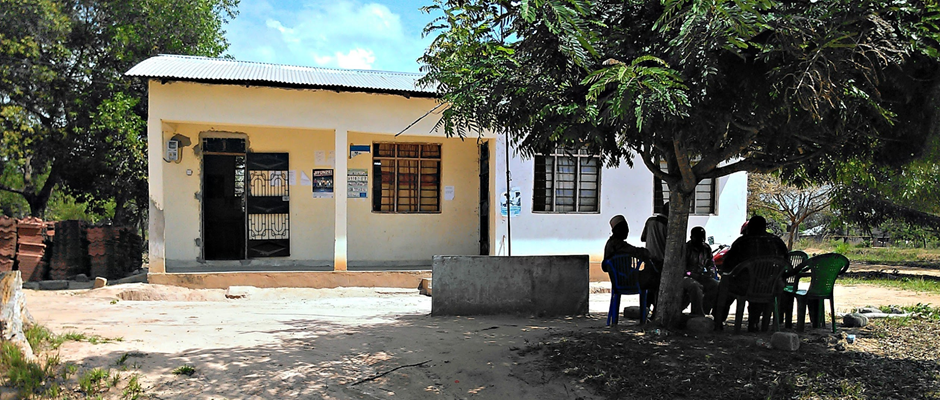
There have been recent calls by health unions in the country calling out government to decentralize primary health care services, saying that the current system disadvantages people in rural areas where resources are scarce and medication is rarely available. The advocates of decentralization argue that “things were much better when clinics were operating under their Councils Clinics used to have their own ambulances and ordered drugs for themselves, things were manageable that way, but with this centralized system it is very difficult to service all health posts because everything is controlled from one place. The ministry orders everything for all the public hospitals and clinics and this has proven to be too much work for them because it delays drugs to arrive well in time and costs heavily on patients.
With almost all countries developing or implementing some form of decentralization, health initiatives targeting control of specific diseases, as well as projects that work on broader health systems restructuring, will be influenced by these decentralization efforts. It is important to assess the degree and types of decentralization and to formulate strategies for promoting more effective decentralization, or at the least learning to cope with and manage within decentralized Systems.
The purpose of this piece is to clarify the concepts of decentralization by introducing a framework of analysis that defines decentralization in terms of the decision space that public officials at different administrative levels of the state have, their capacities, and their accountability. Decentralization is basically about who makes decisions over what specific issues and how much choice they are able to make about these issues. If governance is about the rules that distribute roles and responsibilities among societal actors and that shape the interactions among them, then decentralization is a specific case of governance. It specifies the arena – national provincial or state, district or county, or municipality – that is addressed by interest groups from civil society, where the political processes over specific policymaking is made. It determines who participates in those decisions and who is responsible for implementing those policies.
Decentralization specifies where the responsibilities of the state lie. Since responsibilities for different issues are often shared among all levels of government, it is important to understand the specific allocations of decision-making power and responsibility at each level in order to develop appropriate strategies for strengthening the governance capacities at those levels. Many countries around the world have begun to decentralize their general public administration in ways that directly affect their health systems. Often responsibilities and authority, once vested in the ministry of health, are transferred to the elected governments at state, province, county, and municipal levels. In other cases, highly centralized health systems grant greater decision-making authority to their own regional and district offices.
Governments decentralize for a variety of reasons. Sometimes the process is initiated for political reasons to encourage greater democratic processes and to guard against future authoritarians consolidating power in the center. Often, advocates for decentralization argue that decentralization can improve the accountability and responsiveness of local officials to preferences of the local population and, with better knowledge about the local conditions, can produce better policies for addressing specific local needs.
Others have demonstrated that decentralization can improve the equity of allocations to localities. These advantages may have positive effects on health system objectives. On the other side, many have found that decentralization is not the panacea claimed by its supporters. Some studies have noted that decentralizing health systems has failed to alleviate drug shortages or increase efficiency of resource utilization. Others have found that decentralization actually disrupts health systems, leading to fragmentation, inadequate funding, disruption of centralized logistics and information systems, and a breakdown of relatively successful vertical programs such as family planning and immunization. Decentralization is a structural change in governance that changes who makes decisions and how much choice they have over different functional issues of health systems. The effectiveness of decentralization will be strongly influenced by the actual range of choice allowed to local decision makers as well as their capacities to make good decisions, the funding available for implementing programs, the local administrative capacity for implementation, and the degree of accountability they have to both national government and to their local populations.
Decentralization disaggregates the state category, allowing for a local set of officials to be more directly accountable to their local clients/citizens and to have more direct influence over local providers. However, of course, the relationships are more complicated. The national governments rather than local governments may be more responsive to the needs and desires of the local population, especially the poor, if the local government is captured by local elites.
And the national government might have better access. It is important to know who in the state is making decisions, especially if we want those officials to be more accountable. The standard definitions of decentralization make useful distinctions among the officials who are in regional or district offices of the ministry of health, which is called deconcentration; local government officials of states, provinces, municipalities, devolution; or officials of to knowledge and expertise of those who know more about what kinds of services will be most effective in addressing health needs semiautonomous agencies like a central board of health, accrediting agency, and the like, delegation. There are significant differences in the potential decision-making authority and the accountability implied in these categories.
Deconcentration usually allows significant control by the national ministries since they usually are responsible for the career paths of local decision makers and they specify the norms of service for these officials. Devolution, while often increasing the range of choice allowed, also introduces competition with other sectors for local resources since local officials usually are responsible for education, water and sanitation, and other local services that compete for local budgets. Devolution introduces other stakeholders into the decision making over local health system activities, which often changes health system priorities.
Delegation is often a means of sharing responsibility in ways that introduce new mixes of stakeholders and new administrative structures to implement policy decisions made by national government actors. Decentralization often involves a significant shift in control of funds and the local contribution of funds. Complex mechanisms of transferring funds from the central government to local authorities often restrict local decisions over these funds through earmarking expenditures for specific activities, but in some instances these intergovernmental transfers are in untied block. grants over which local authorities can make relatively unrestricted choices. In addition, local governments often assume a larger responsibility for funding their services by assigning local revenues from taxes and other sources. One of the often-mentioned problems with decentralization is the lack of sufficient capacity at the local level to make appropriate decisions and to implement them without strong direction and supervision from the top. These capacity gaps come in a variety of forms: lack of sufficient staff in critical administrative positions, lack of appropriate education, training, and experience to develop needed technical and managerial skills, and evidence of high levels of corruption, patronage, and favoritism.
Thabo Lucas Seleke is a Researcher in Health Policy and Health Systems Strengthening.
This article was originally published on Sunday Standard, June 21, 2015.



